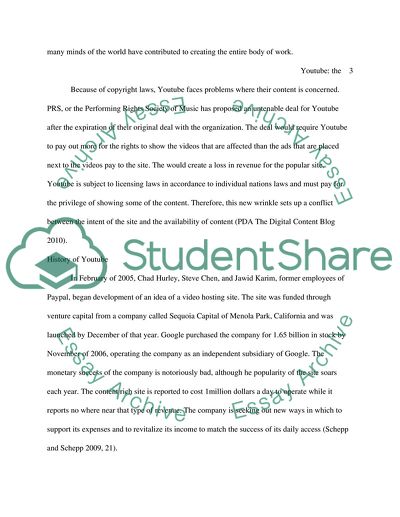Cite this document
(Youtube -The Radical Environment for Self-promotion That Is Facing Research Paper, n.d.)
Youtube -The Radical Environment for Self-promotion That Is Facing Research Paper. Retrieved from https://studentshare.org/information-technology/1738408-discuss-youtubes-decisions-to-take-down-music-videos-httpwwwguardiancoukmediapda2009mar09digital-music-and-audio-youtube-what-are-the-changes-that-corporatization-has-brought-to-sites-like-youtube-that-promote-diy-culture
Youtube -The Radical Environment for Self-promotion That Is Facing Research Paper. Retrieved from https://studentshare.org/information-technology/1738408-discuss-youtubes-decisions-to-take-down-music-videos-httpwwwguardiancoukmediapda2009mar09digital-music-and-audio-youtube-what-are-the-changes-that-corporatization-has-brought-to-sites-like-youtube-that-promote-diy-culture
(Youtube -The Radical Environment for Self-Promotion That Is Facing Research Paper)
Youtube -The Radical Environment for Self-Promotion That Is Facing Research Paper. https://studentshare.org/information-technology/1738408-discuss-youtubes-decisions-to-take-down-music-videos-httpwwwguardiancoukmediapda2009mar09digital-music-and-audio-youtube-what-are-the-changes-that-corporatization-has-brought-to-sites-like-youtube-that-promote-diy-culture.
Youtube -The Radical Environment for Self-Promotion That Is Facing Research Paper. https://studentshare.org/information-technology/1738408-discuss-youtubes-decisions-to-take-down-music-videos-httpwwwguardiancoukmediapda2009mar09digital-music-and-audio-youtube-what-are-the-changes-that-corporatization-has-brought-to-sites-like-youtube-that-promote-diy-culture.
“Youtube -The Radical Environment for Self-Promotion That Is Facing Research Paper”, n.d. https://studentshare.org/information-technology/1738408-discuss-youtubes-decisions-to-take-down-music-videos-httpwwwguardiancoukmediapda2009mar09digital-music-and-audio-youtube-what-are-the-changes-that-corporatization-has-brought-to-sites-like-youtube-that-promote-diy-culture.


